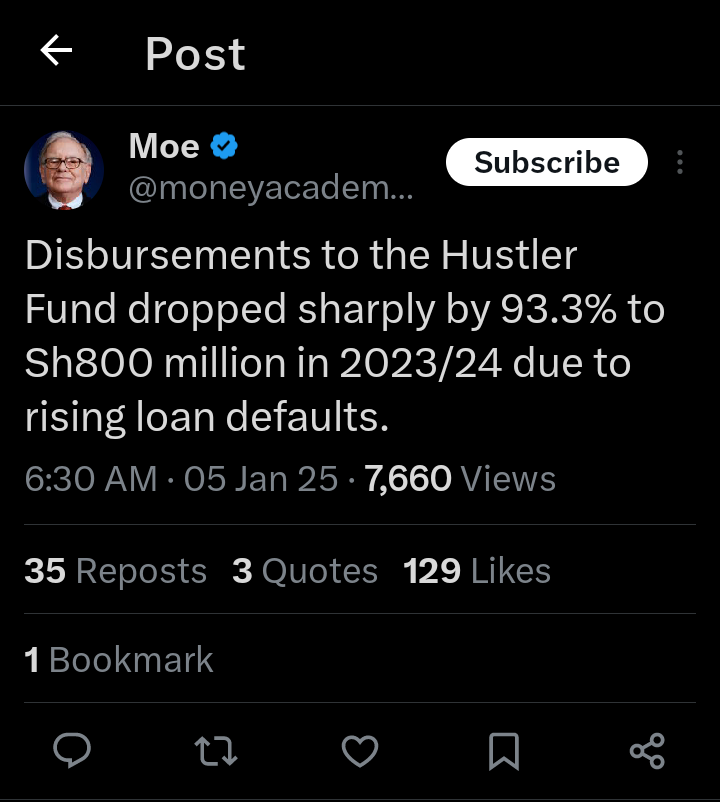The Hustler Fund, officially known as the Financial Inclusion Fund, was launched by the Kenyan government in late 2022 to provide instant loans to citizens, aiming to support small businesses and individuals in need of financial assistance.
In the 2023/24 fiscal year, disbursements from the Hustler Fund plummeted by 93.3% to Sh800 million, a major drop attributed to rising loan defaults.
By August 2023, reports indicated that 29% of the outstanding loan book was at risk, with borrowers behind on repayments.
Approximately Sh3 billion worth of loans had defaulted, nearly double the default rate of commercial banks.
Several factors have contributed to this downturn.
Critics argue that the fund’s rollout was flawed, with initial loan amounts too small to effectively kick-start businesses.
For instance, some applicants received as little as Sh500 (about $4), insufficient for meaningful business investment.
Additionally, the fund faced budget constraints.
The Standard reported that in the first budget of the 2023 fiscal year, the Hustler Fund was allocated only Sh5 billion, limiting its capacity to meet demand and support borrowers adequately.
The high default rates have raised concerns about the fund’s sustainability and management.
In response, President William Ruto announced that defaulters would be barred from accessing larger group loans under the Hustler Fund, aiming to encourage repayment and reduce defaults.

To address financial challenges, the Kenyan government entered discussions with the World Bank and the European Union for increased backing.
Reports suggest that the World Bank expressed willingness to offer Sh20 billion in support, which could bolster the fund’s capacity and improve its management.
Despite these efforts, the sharp decline in disbursements and rising defaults indicate deeper issues within the Hustler Fund’s administration.
Effective management, adequate funding, and realistic loan amounts are crucial to ensure the fund fulfills its mission of supporting Kenyans in need.
The Hustler Fund’s significant reduction in disbursements during the 2023/24 fiscal year highlights challenges in its implementation and management.
Addressing these issues is essential to restore confidence and achieve the fund’s objectives of financial inclusion and support for small enterprises in Kenya.





















Add Comment